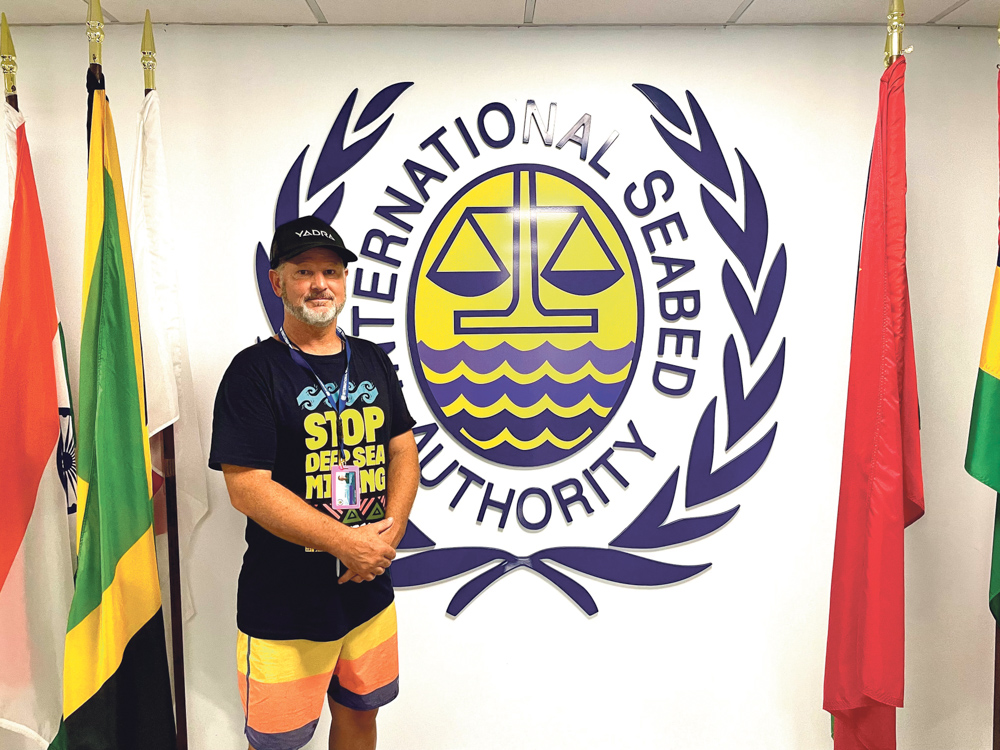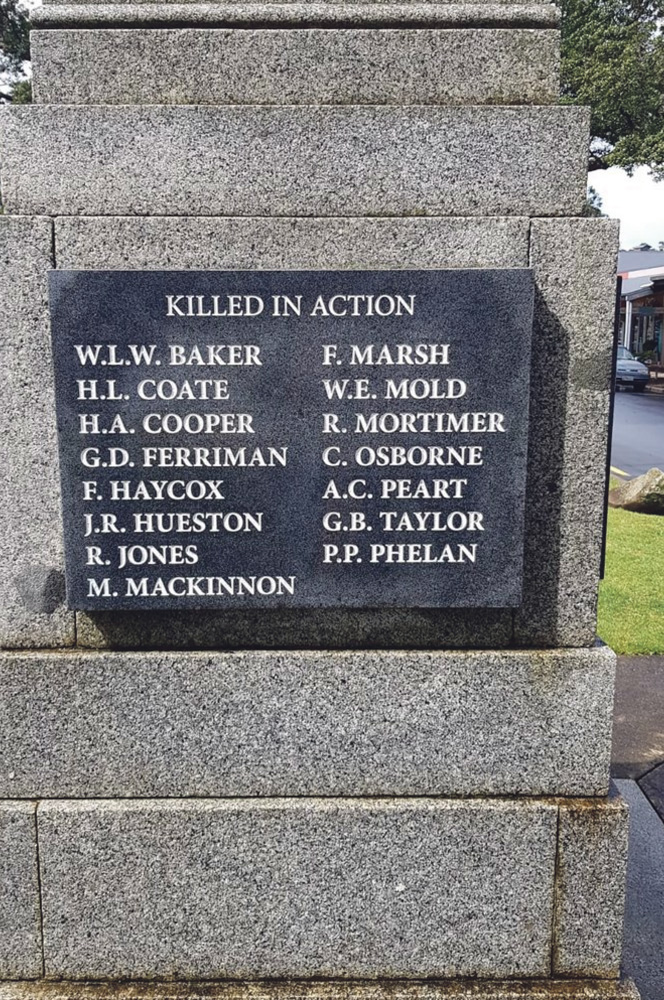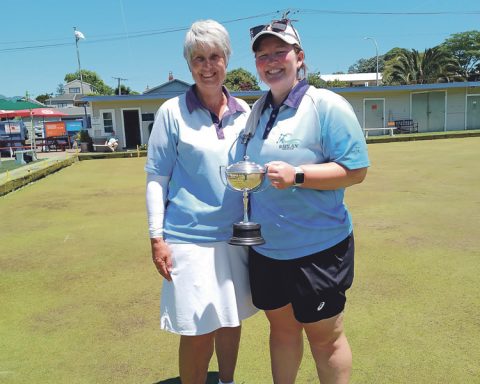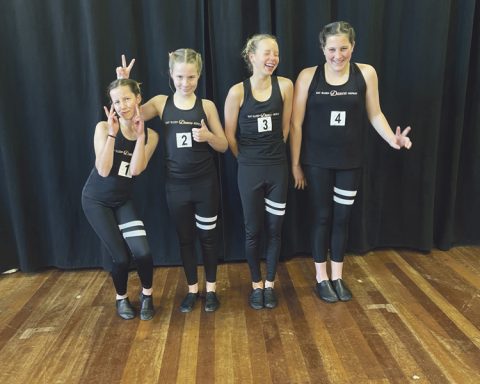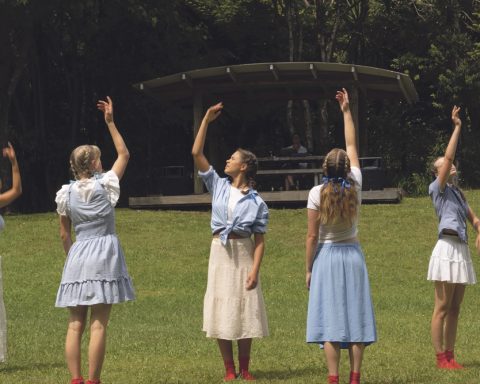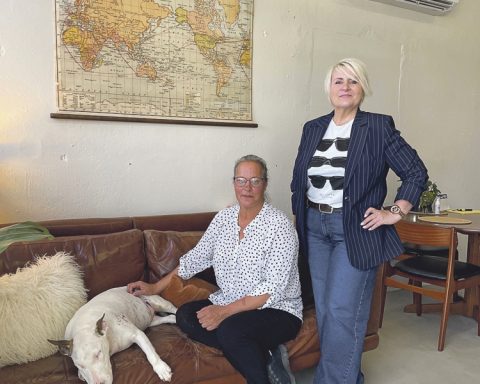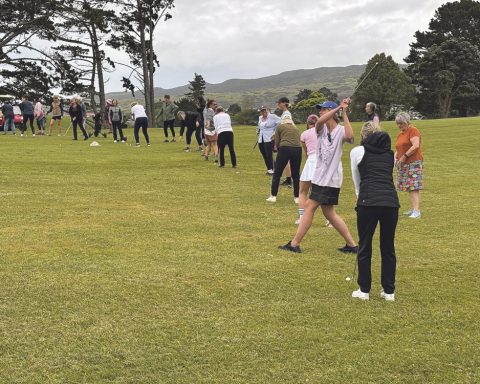Local activist and surfer Phil McCabe is a man on an ambitious new mission – to help stop seabed mining in international waters which, he points out, make up half the surface of our planet.
And the one-time president of Whaingaroa’s grassroots community organisation Kiwis Against Seabed Mining (KASM), one of the first groups in the world to successfully fight proposed strip-mining, believes he’s “got some experience to share”.
Three times Trans-Tasman Resources (TTR) applications to mine our west coast waters were overturned, he told the Chronicle, but now that very same activity threatens our international waters.
“It needs to be stopped,” Phil insists. “New Zealand has shown seabed mining cannot be done without damage to the marine environment.”
This time around Phil’s fighting at a whole new “diplomatic” level in his capacity as Pacific regional leader on seabed mining for the Deep Sea Conservation Coalition (DSCC), which is made up of more than 100 non-government organisations globally.
As such he’s returned recently from the ‘Our Ocean Conference’ in Panama which, among other things, sought to highlight the importance of creating marine protected areas.
From Panama his adventures also took him aboard the Greenpeace boat ‘Arctic Sunrise’ – with a group of Pacific and Maori indigenous activists – on a voyage to the International Seabed Authority (ISA) headquarters in Kingston, Jamaica.
It was here that the ISA’s council of 36 countries debated the mining of seabed resources. And while Phil concedes that no mining has yet started, he warns that explorations in international waters could very quickly turn to exploitation once the ISA’ s full assembly of 167 countries meets in July.
Phil will be there pushing New Zealand’s call for a conditional moratorium – and while he doesn’t have a lot of confidence in the integrity of the international body, which he says has an “overtly pro mining” secretary-general, he’s hopeful other countries will join the call for a stay on seabed mining.
There’s a growing collective of countries saying no to mining, he adds, and “we have to build that momentum”.
Phil says he’s grateful for the opportunity, as a regional leader for the DSCC, to learn how the world of international diplomacy works. And he has a lot to share about New Zealand’s successful fight against TTR’s three applications to strip-mine our west coast.
Because of this New Zealand is 10 years ahead of the rest of the world, he points out, with proper processes now in place so submissions can be made and experts brought in to debate issues.
Critics say the ISA by contrast is “not fit for purpose”, designed as it was back in the 70s and 80s. They believe it lacks transparency, with very little attention paid to the kind of standards and guidelines New Zealand has adopted.
Phil meanwhile points to Antarctica as a good example of what can happen when enough countries say no to the mining of valuable resources. Antarctica was on the cusp of starting mining 30 years ago, he explains, but the Australian and then French prime ministers of the time stepped in to scupper the plans.
With other countries’ support for a 50-year moratorium on mining in the Antarctic, he says, “we now have a natural reserve dedicated to peace and knowledge”.
Edith Symes
